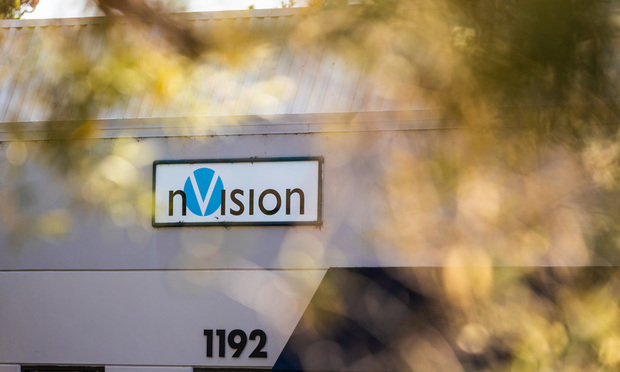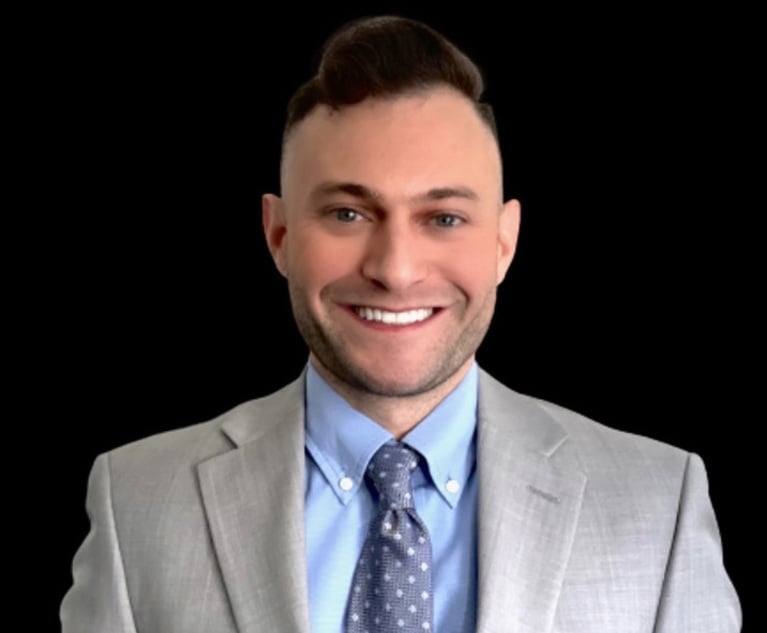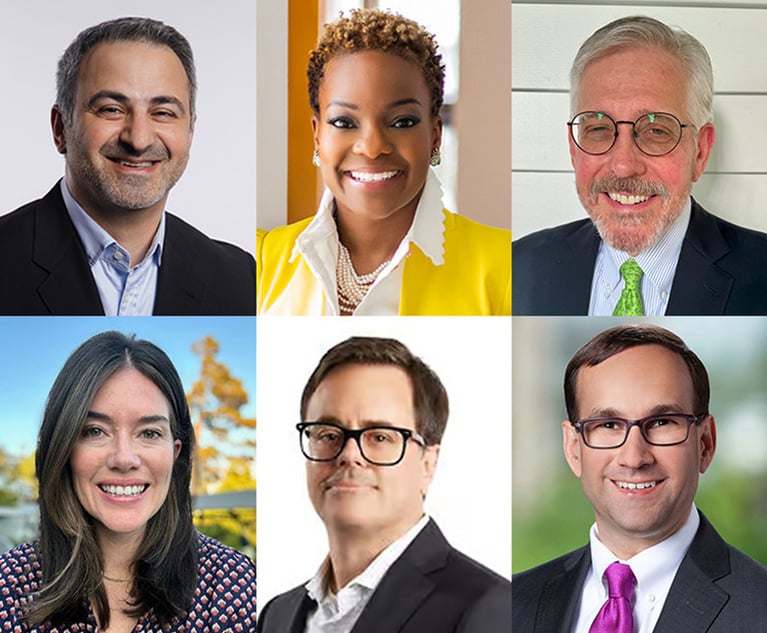A Tech Superwoman Is Accused of Borrowing Her IP Powers
Surbhi Sarna started a company for detecting ovarian cancer and sold it for $150 million before turning 35. Now a long-ago former employer is claiming that Sarna actually developed the technology on its dime, with its trade secrets.
July 17, 2020 at 05:11 PM
5 minute read
 Exterior of nVision Medical at 1192 Cherry street in San Bruno, CA. Photo: Jason Doiy/ALM
Exterior of nVision Medical at 1192 Cherry street in San Bruno, CA. Photo: Jason Doiy/ALM
For Surbhi Sarna, business is personal. At age 13 she developed an ovarian cyst, but at the time the only way to determine if was cancerous was by invasive surgery that risked spreading any cancer.
The cyst ultimately was benign, but it shaped Sarna's career. "Right away, after that experience," she told a UC alumni publication, "I knew that I wanted to be an entrepreneur and start a company dedicated to women's health to try to find an early detection mechanism for ovarian cancer."
As a product development engineer at San Carlos heart health company BioCardia Inc., she worked nights and weekends patenting innovative diagnostic tools for fallopian tubes. She left BioCardia after four years, in 2012, and started her own company, nVision Medical Corp.
The departure appears to have been amicable. "Hey Surbs," BioCardia Vice President for Regulatory Andrew Mackenzie emailed her after reconnecting at a 2013 medical conference. Mackenzie told her it made him "happy to see how successful you have been at pursuing the birth of your company."
Sarna and nVision have indeed grown successful. By 2015, Forbes named Sarna a Tech Superwoman. Then Boston Scientific Corp. paid $150 million plus milestone payments to acquire nVision in 2018. And now, the feelings at BioCardia, a publicly traded company with a market cap of $30 million, seem less warm.
BioCardia and Boston Scientific have been locked in litigation since last year. At a nearly two-hour Zoom hearing before U.S. District Judge Vince Chhabria of the Northern District of California on Thursday, BioCardia argued that Sarna quietly incorporated nVision and began applying for patents just a year into her tenure at BioCardia. "It is very, very common in the valley for people to start up companies while they're still leaving. It's not common that they start the company for two and a half years and never tell anyone," Ian Feinberg of Burlingame's Feinberg Day Kramer Alberti Lim Tonkovich & Belloli argued for BioCardia.
Feinberg accused Sarna of using BioCardia trade secrets to develop her technology for guiding catheters through fallopian tubes. He further sought to impose a constructive trust on the venture capitalists who he said should have seen red flags around nVision's intellectual property and were unjustly enriched by the Boston Scientific acquisition. "They've taken the risk that it will turn out that nVision has contaminated IP," Feinberg said.
That part of the case sounded like a long shot following Thursday's hearing. "At that point is there wrongdoing?" Chhabria asked Feinberg. "You're saying, 'We're going to invest in a company, and there's risk that there may be problems with its IP.' I mean, I assume that happens every day in Silicon Valley."
Sarna agreed by contract to assign all her inventions to BioCardia while in its employ. But the agreement had a carve-out for California Labor Code Section 2870, which specifies that an invention developed on an employee's own time, on subject matter outside the scope of employment, belongs to the employee.
Boston Scientific, nVision and Sarna argue that Sarna's technology has nothing to do with heart health, and that she was always upfront about her plans and ambitions. On the day she interviewed for her job, she told BioCardia she expected to be running a women's health company in five years, Sarna's attorney, Bob Freitas, told Chhabria on Thursday. "That she was doing something in secret" is not true, said Freitas, of Redwood City's Freitas & Weinberg.
Freitas said there are "a whole host of facts" that will show BioCardia knew about Sarna's patents for years and never complained until the Boston Scientific acquisition, long after the statutes of limitations ran. In court papers, nVision notes that BioCardia vice president Mackenzie was at the June 2013 conference where Sarna presented about her company and its technology. "Several patents pending on unique catheter characteristics and methods of use," states a slide deck that accompanied Sarna's presentation that day.
Feinberg acknowledged Thursday that "there is going to be a major fight in this case over statute of limitations, and when BioCardia knew or should have known" about the patents. "That is going to be a real fight."
Faegre Drinker Biddle & Reath partner Timothy Grimsrud appeared briefly for Boston Scientific. He noted that the company announced earlier this year that it's stopped investing in the nVision technology. "This is not a case where there's going to be a product coming out from nVision," he said.
Chhabria sounded open to the argument that Sarna misappropriated BioCardia trade secrets, though he emphasized he was only "thinking out loud" at an early stage of the litigation. On three different occasions he characterized Sarna as having "repurposed" BioCardia technology, even though Feinberg cautioned that he wouldn't put it quite that strongly.
The statute of limitations may be BioCardia's biggest problem, but it will have to wait until summary judgment motions. "If you made me bet," Chhabria said, "I would say it's a summary judgment fight that the defendants are going to have a very good chance of winning."
In the meantime he asked for letter briefs on the venture capital issue and whether nVision was properly added as a defendant. He scheduled another hearing for next week.
"This is a very interesting case. It's a very complicated problem," Chhabria said. "And I want to spend more time, probably a lot more time talking about it."
This content has been archived. It is available through our partners, LexisNexis® and Bloomberg Law.
To view this content, please continue to their sites.
Not a Lexis Subscriber?
Subscribe Now
Not a Bloomberg Law Subscriber?
Subscribe Now
NOT FOR REPRINT
© 2025 ALM Global, LLC, All Rights Reserved. Request academic re-use from www.copyright.com. All other uses, submit a request to [email protected]. For more information visit Asset & Logo Licensing.
You Might Like
View All


'Pull Back the Curtain': Ex-NFL Players Seek Discovery in Lawsuit Over League's Disability Plan

'Be Comfortable Being Uncomfortable': Pearls of Wisdom From 2024 GC Q&As
Law Firms Mentioned
Trending Stories
- 1Gunderson Dettmer Opens Atlanta Office With 3 Partners From Morris Manning
- 2Decision of the Day: Court Holds Accident with Post Driver Was 'Bizarre Occurrence,' Dismisses Action Brought Under Labor Law §240
- 3Judge Recommends Disbarment for Attorney Who Plotted to Hack Judge's Email, Phone
- 4Two Wilkinson Stekloff Associates Among Victims of DC Plane Crash
- 5Two More Victims Alleged in New Sean Combs Sex Trafficking Indictment
Who Got The Work
J. Brugh Lower of Gibbons has entered an appearance for industrial equipment supplier Devco Corporation in a pending trademark infringement lawsuit. The suit, accusing the defendant of selling knock-off Graco products, was filed Dec. 18 in New Jersey District Court by Rivkin Radler on behalf of Graco Inc. and Graco Minnesota. The case, assigned to U.S. District Judge Zahid N. Quraishi, is 3:24-cv-11294, Graco Inc. et al v. Devco Corporation.
Who Got The Work
Rebecca Maller-Stein and Kent A. Yalowitz of Arnold & Porter Kaye Scholer have entered their appearances for Hanaco Venture Capital and its executives, Lior Prosor and David Frankel, in a pending securities lawsuit. The action, filed on Dec. 24 in New York Southern District Court by Zell, Aron & Co. on behalf of Goldeneye Advisors, accuses the defendants of negligently and fraudulently managing the plaintiff's $1 million investment. The case, assigned to U.S. District Judge Vernon S. Broderick, is 1:24-cv-09918, Goldeneye Advisors, LLC v. Hanaco Venture Capital, Ltd. et al.
Who Got The Work
Attorneys from A&O Shearman has stepped in as defense counsel for Toronto-Dominion Bank and other defendants in a pending securities class action. The suit, filed Dec. 11 in New York Southern District Court by Bleichmar Fonti & Auld, accuses the defendants of concealing the bank's 'pervasive' deficiencies in regards to its compliance with the Bank Secrecy Act and the quality of its anti-money laundering controls. The case, assigned to U.S. District Judge Arun Subramanian, is 1:24-cv-09445, Gonzalez v. The Toronto-Dominion Bank et al.
Who Got The Work
Crown Castle International, a Pennsylvania company providing shared communications infrastructure, has turned to Luke D. Wolf of Gordon Rees Scully Mansukhani to fend off a pending breach-of-contract lawsuit. The court action, filed Nov. 25 in Michigan Eastern District Court by Hooper Hathaway PC on behalf of The Town Residences LLC, accuses Crown Castle of failing to transfer approximately $30,000 in utility payments from T-Mobile in breach of a roof-top lease and assignment agreement. The case, assigned to U.S. District Judge Susan K. Declercq, is 2:24-cv-13131, The Town Residences LLC v. T-Mobile US, Inc. et al.
Who Got The Work
Wilfred P. Coronato and Daniel M. Schwartz of McCarter & English have stepped in as defense counsel to Electrolux Home Products Inc. in a pending product liability lawsuit. The court action, filed Nov. 26 in New York Eastern District Court by Poulos Lopiccolo PC and Nagel Rice LLP on behalf of David Stern, alleges that the defendant's refrigerators’ drawers and shelving repeatedly break and fall apart within months after purchase. The case, assigned to U.S. District Judge Joan M. Azrack, is 2:24-cv-08204, Stern v. Electrolux Home Products, Inc.
Featured Firms
Law Offices of Gary Martin Hays & Associates, P.C.
(470) 294-1674
Law Offices of Mark E. Salomone
(857) 444-6468
Smith & Hassler
(713) 739-1250






